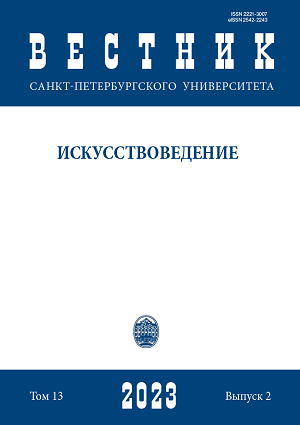Fashion and the Question of the Symbolic: The Ideology of Value and Its Limits
DOI:
https://doi.org/10.21638/spbu15.2023.210Аннотация
Questions of the symbolic occupy one of the central places in the structure and concept of fashion. The system of the symbolic — obscure, not always lending itself to identification and definition — forms the basis of fashion as a mechanism focused upon inversion and acceptance of a conventional system of values. The ideology of the symbolic, founded on the establishment of symbolic values is of direct relevance to an understanding of the system of fashion. The symbolic holds a central position in the establishment of a system of values. It constructs the rich content of the semantic vector of fashion. The artistic, visual and content platform of fashion is built on the basis of the symbolic. This conception was outlined by Jacques Lacan, and then developed further by such figures as Gilles Deleuze, Felix Guattari, Michel Foucault, Jean Baudrillard and Pierre Bourdieu. Existing in a variety of statuses and supporting a whole range of basic programmes — shaping concepts of the authentic, defining mechanisms of exchange and significance, denoting the boundaries of the social field — the symbolic maintains and determines the visual and semantic rules of fashion. This paper examines the main theories of the symbolic associated with the formation of the ideological and artistic programme of fashion.
Ключевые слова:
fashion theory, symbol, symbolic, Jacques Lacan, Michel Foucault, Pierre Bourdieu
Скачивания
Библиографические ссылки
Загрузки
Опубликован
Как цитировать
Выпуск
Раздел
Лицензия
Статьи журнала «Вестник Санкт-Петербургского университета. Искусствоведение» находятся в открытом доступе и распространяются в соответствии с условиями Лицензионного Договора с Санкт-Петербургским государственным университетом, который бесплатно предоставляет авторам неограниченное распространение и самостоятельное архивирование.






